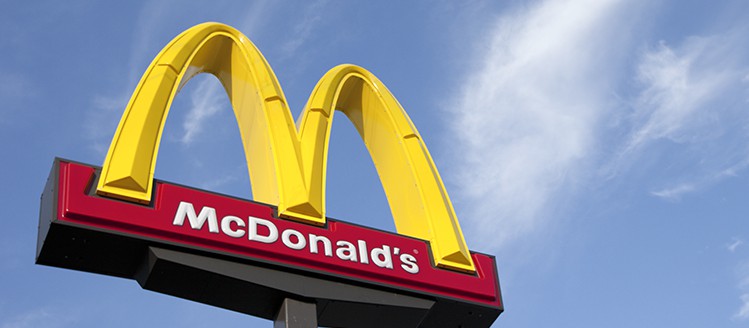How McDonald’s can meet (meat?) its climate goals

This post was written by GFI Corporate Engagement Specialist Zak Weston. Enjoy!
Fast food giant McDonald’s recently announced an ambitious goal to cut its greenhouse gas emissions 36% by 2030. McDonald’s is using its scale to set a good example for other companies to follow. But their announcement stopped short of addressing the easiest way they can reduce emissions: swapping out some beef patties for plant-based burgers.
According to McDonald’s CEO Steve Easterbrook, “To meet this goal, we will source our food responsibly, promote renewable energy and use it efficiently, and reduce waste and increase recycling.”

McDonald’s will also be partnering with universities researching better cattle-grazing methods. But if sustainability is the goal, why not cut cattle out of the equation altogether?
United Nations scientists state that raising and killing animals for food is “one of the major causes of the world’s most pressing environmental problems, including global warming, land degradation, air and water pollution, and loss of biodiversity.” Conventional animal agriculture is responsible for more greenhouse gas emissions than any other sector of the global economy, including transportation.

Plant-based burger-maker Impossible Foods estimates that switching from just one cow-based burger to one Impossible Burger spares the emissions of about 18 miles worth of driving, about 25 days worth of drinking water, and about 75 square feet of land.
Adding a Beyond Burger, Impossible Burger, or a custom plant-based patty wouldn’t be a stretch for the brand: McDonald’s customers in Finland and Sweden can currently order the McVegan, a soy-based plant burger first introduced in December 2017.

NPR’s “The Salt” reports that half of all Swedes expressed an increased interest in choosing vegetarian options during the last year. These mainstream consumers who are reducing their meat consumption are often labeled flexitarians, and the McVegan’s popularity with this crucial demographic in Scandinavia bodes well for similar products in the U.S.
By focusing on energy efficiency, sustainable packaging, and recycling, McDonald’s is making positive steps towards sustainability. However, replicating the success of the McVegan in other countries would make a much larger dent in the brand’s sustainability goals, without sacrificing taste, price, or convenience for customers.
To learn more about GFI’s work supporting healthy, humane, and sustainable food, click here.

